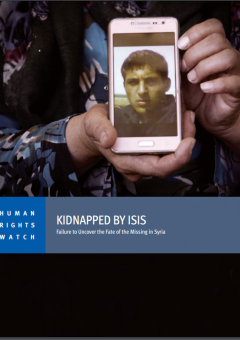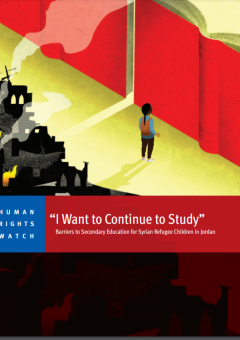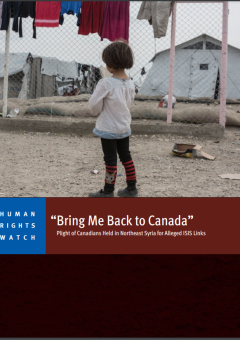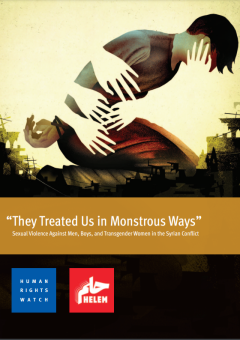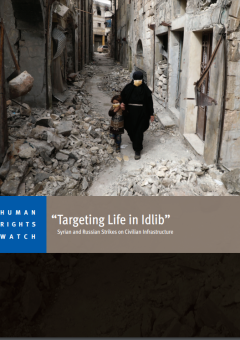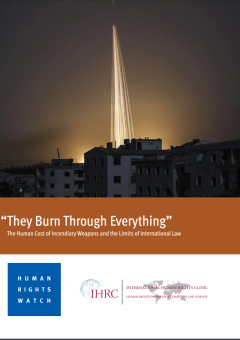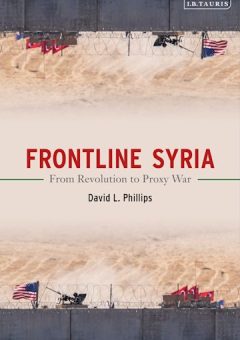years: 2020
- September 25, 2023
- 10:02 pm
Abstract / Review
The Islamic State’s (ISIS) expansion in Iraq and Syria featured horrendous public abuses. Largely unseen but equally egregious were the widespread detentions and kidnappings by the group –thousands of people snatched from their homes and cars and at checkpoints, who subsequently went missing. While the full scale of the missing
- September 25, 2023
- 9:59 pm
Abstract / Review
As the Syria conflict continues into its tenth year, Syrian refugee children in Jordan are confronting obstacles to education that grow more acute as they progress into secondary education. Every child has the right to a quality primary and secondary education. But only a quarter of secondary-school-age Syrian refugee children
- September 25, 2023
- 9:56 pm
Abstract / Review
More than one year ago, in March 2019, local fighters aided by a US-led, international coalition routed the Islamic State (ISIS) from the Syrian town of Baghouz, the last holdout of the group’s self-declared caliphate. In addition to capturing Syrians, the US-backed fighters, called the Syrian Democratic Forces (SDF), rounded
- September 25, 2023
- 9:51 pm
Abstract / Review
Since the Syrian conflict began in March 2011, men and boys and transgender women have been subjected to rape and other forms of sexual violence by the Syrian government and non-state armed groups, including the extremist armed group Islamic State (also known as ISIS). Heterosexual men and boys are vulnerable
- September 25, 2023
- 9:47 pm
Abstract / Review
In April 2019, the Syrian government and its ally, Russia, launched a major military offensive to retake Idlib governorate and surrounding areas in northwest Syria— one of the last areas controlled by anti-government armed groups. Over the next 11 months, the Syrian-Russian alliance showed callous disregard for the lives of
- September 25, 2023
- 9:45 pm
Abstract / Review
Over the past decade, the use of incendiary weapons, including white phosphorus, in Afghanistan, Gaza, Syria, and elsewhere has generated serious concerns for dozens of states parties to the Convention on Conventional Weapons (CCW). Many of these states call for strengthening CCW Protocol III, the only international instrument dedicated to
- September 24, 2023
- 7:02 pm
Abstract / Review
When the Syrian regime used sarin and other chemical weapons against dissidents in August 2013, an estimated 1729 people were killed including 400 children. President Barack Obama warned that the use of chemical weapons would constitute a “red line”, but he refused to take military action. Trump’s approach has been

